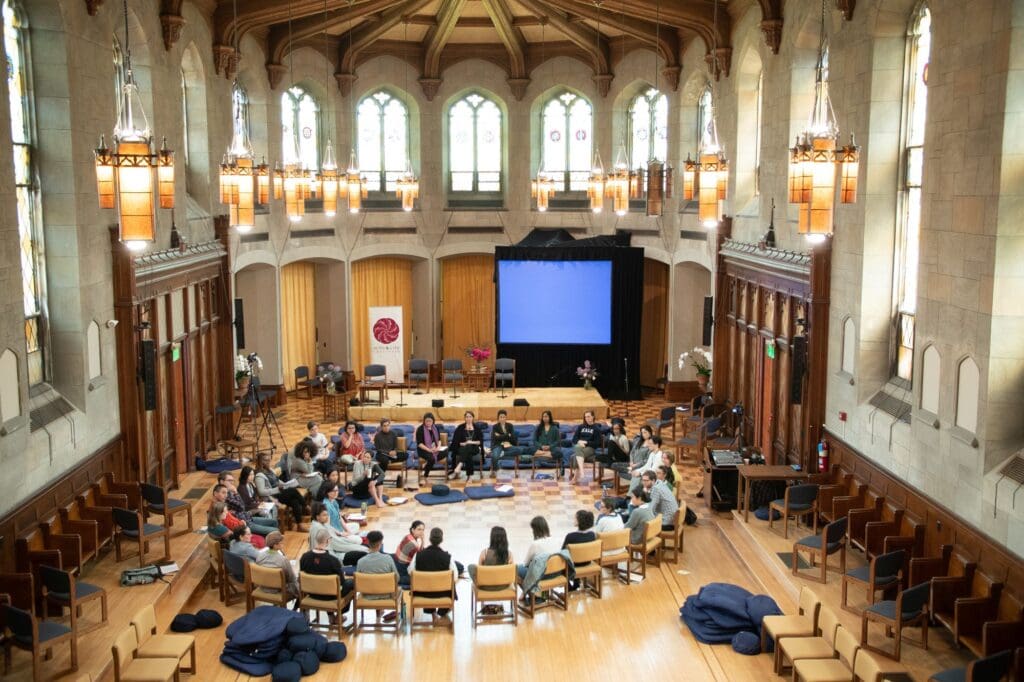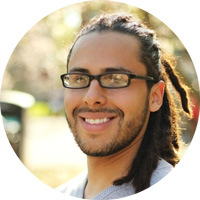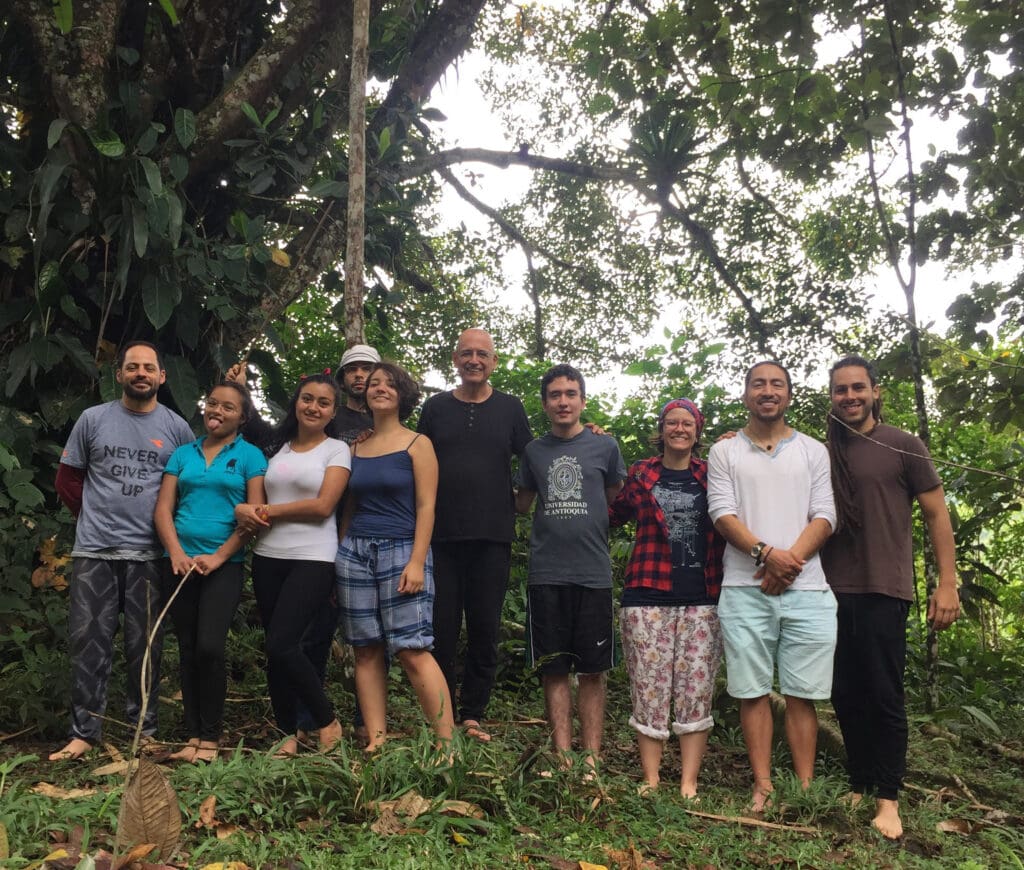
Siblings Juan and Juliana Santoyo received funding from Mind & Life in 2017 to hold a Think Tank to design and plan the implementation of a contemplative practice-based program for ex-combatants in Colombia’s peacebuilding process (members of the program’s pilot pictured above). They believe that nourishing the ability to heal and transform individually and with community is fundamental for the intentional transformation of their country and the world. For more information about their project see https://www.contemplativecolombia.com/.
Background
We grew up in Colombia during a peak in the country’s internal conflict between the Colombian government and combatant groups such as The Revolutionary Armed Forces of Colombia—People’s Army (FARC-EP). While we were raised in the siloed protection of Colombia’s capital city, fear and insecurity surrounded our early lives. The effects of the conflict combined with those of neo-imperialism led to our displacement and pushed our family to the United States to build a new home.
In the US, our experiences of instability and inequity deepened as we encountered this country’s legacies of colonialism, slavery, and displacement as immigrants from South America. Over time, we grew to recognize the effects of these forces on ourselves and our communities, feeling the distortion of self-image and the destabilization of connection and collective power that they cause.
In 2012, when the Colombian government and the FARC-EP entered into peace talks, we were called to attention, suddenly feeling Colombia’s healing and restoration process converging with our own. The peace agreement that was eventually reached in 2016 marked unprecedented progress towards ending one of the longest armed conflicts in the world which would include the demilitarization and reintegration of thousands of FARC-EP ex-combatants back into civilian life.
Aware of the deep interconnectedness between our healing and the healing of our country and communities, we began to develop a project that seeks to complement existing resources for ex-combatants through an immersive psychosocial support program grounded in contemplative practices. We felt an urgent need for creative tools for personal and societal transformation to support ex-combatants’ right to healing, an imperative to equitable peacebuilding.
Our Project
The development of this project involved critical support from a Mind & Life’s Think Tank grant, which provided us with the opportunity to work with a group of collaborators in the fields of contemplative research, mental health, and education. Our aim was to develop a curriculum that provides ex-combatants with immersive training in tools for moving through the stress of reintegration and for connecting with healthy ways of being that are inherent in all people.
In contrast to top-down models, our approach follows the idea that it is imperative to work from an individual and community level first, to cultivate a firm foundation from which people and communities can flourish. This approach is grounded in a fusion of mindfulness and compassion meditation-based practices, contemplative practices from Indigenous Colombian traditions, and liberatory anti-oppression pedagogies, a curricular design that privileges the histories of marginalized people. Our aim is to center ex-combatants’ communal wisdom, needs, and voices to develop a program that fosters an understanding of the psychobiological and sociopolitical factors that drive stress and trauma, offers tools for healing and growth, and creates a community structure to support these processes beyond program completion.
In collaboration with our local partners the Fundación Zen Montaña de Silencio, a Colombian non-profit foundation and branch of the San Francisco Zen Center, and the Grupo de Neuropsicologia y Conducta (Neuropsychology and Behavior Group) at the Universidad de Antioquia, we have recently completed a pilot run of the new curriculum: a 10-week program consisting of 3-hour weekly classes, daily homework, and a weekend retreat, in Medellin, Colombia.
At the end of the pilot, participants reported meaningful psychosocial benefits, an investment in continuing to develop their individual contemplative paths, and a commitment to sustaining a community structure with other participants that could support their practice moving forward. Of particular promise, participants finishing the pilot have committed to start training to eventually become program facilitators themselves, allowing them to shape and lead the program’s future.
Key Lessons
The dynamics of power and privilege between coordinators and the target audience must be considered. Even though we had brought in researchers and academics with relevant knowledge, we saw a need to uplift the expertise of the population to be served as equally valuable. We felt that not examining this initial bias could risk replicating oppressive colonial dynamics and limit the learning and sharing of local knowledge traditions.
Prioritizing the participation of social justice advocates and community members is fundamental for equitable research. Since social transformation was a focus of our project, we recognized a need to work closely with folks involved in grassroots advocacy. We held concerns that such a project led by researchers alone would include blindspots that could hinder equitable, relatable, and directly applicable results. We found these collaborations essential for remedying this while raising sensitivity to the needs of populations being served.
Integrating practices from Indigenous traditions can serve to center and celebrate Indigenous histories, identities, and healing practices while addressing marginalization. Importantly, mestizo and black people in Colombia, like people of color in the US, live in contexts where their Indigenous and African ancestries have been shamed and othered. In developing our curriculum and through our pilot, we found it vital to ground this work in a fully informed and consensual collaboration with practitioners from Indigenous traditions, recognizing their ongoing work to revitalize Indigenous knowledge, and agreeing that fruits of this work should aim to benefit Indigenous communities equally.
Going Forward
Continuing through 2020, we will offer our curriculum over the course of five cycles during which we will assess the program’s effects on ex-combatants’ stress, well-being, and sense of belonging. Our aim is to develop a refined curriculum that may then continue to be offered in Colombia with leadership from ex-combatants’ that have completed the program.
Perhaps most importantly, the development of this project so far has taught us that in order for healing and peacebuilding work to be sustainable and transformative, we should center practices that help us live into what our hearts, minds, and bodies deserve to feel—abundant love, pleasure, and community. We cannot focus only on our suffering and pain. We are in this work to envision new possibilities together, to joyfully connect with ourselves and our community, and to explore ways of being in collective liberation to build the future we all deserve.
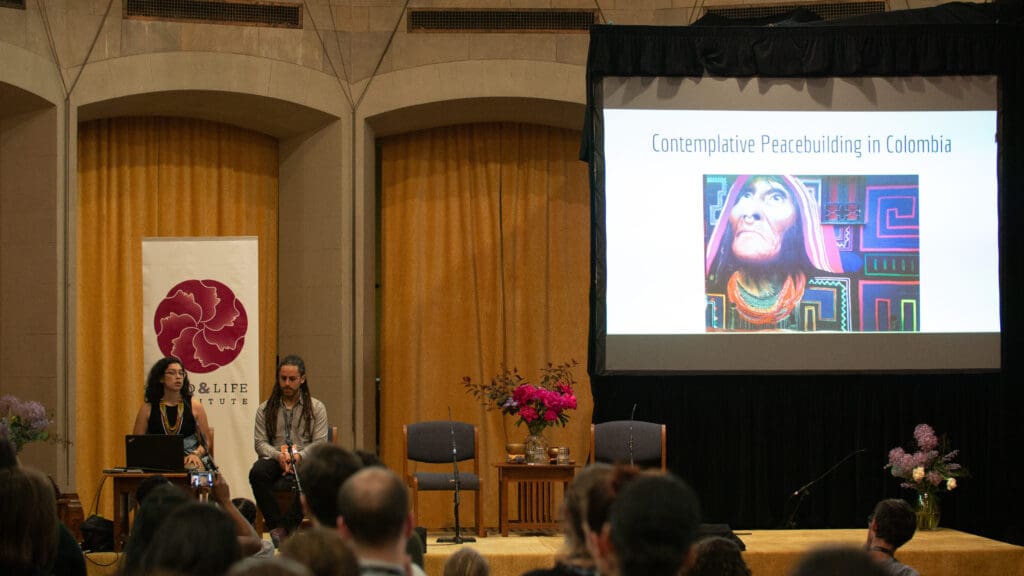
We would like to express gratitude for the financial support we’ve received from Mind & Life’s Think Tank Grant, and from everyone who has generously contributed or helped to disseminate our Gofundme! Additionally, we are so very grateful to everyone that has contributed logistical, creative, contemplative, emotional, and intellectual support to this project: The Black Lotus Collective, The Contemplative Peacebuilding Think Tank, The Contemplative Studies Initiative at Brown University, The Humanitarian Innovation Initiative at the Brown University Watson Institute for International and Public Affairs, the Fundación Zen Montaña de Silencio, the Colombian government’s Agencia para la Reincorporación y la Normalización, the Grupo Neuropsicología y Conducta at the Universidad de Antioquia, the Neuro y Vida research team, our Co-PI Sara Lazar, and our program facilitators Juan Felipe Jaramillo, John Jader Agudelo, and Pablo Tisoy Tandoy.
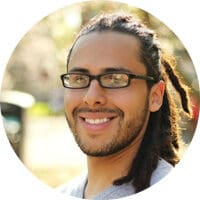
Juan Santoyo
Universidad de Antioquia; Massachusetts Institute of Technology
Grantee, Planning Committee Member, Reviewer
Juan is an early-career researcher from Colombia who works in neuroscience and contemplative research. His training has involved studying the neurophysiological dynamics underlying meditation training and sensory perception in humans, … MORE
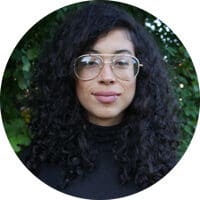
Juliana M Santoyo, EdM
One Square World
Convening Faculty, Fellow, Grantee, Reviewer
Juliana Santoyo (they/them) is a mixed, nonbinary femme who walks the red road, born amongst the sacred mountains and rivers of the Northern Andes Mountains located in so-called Colombia. They … MORE

